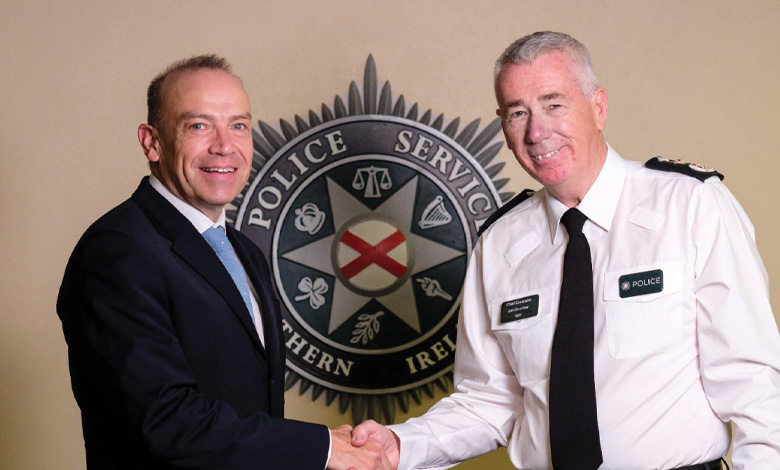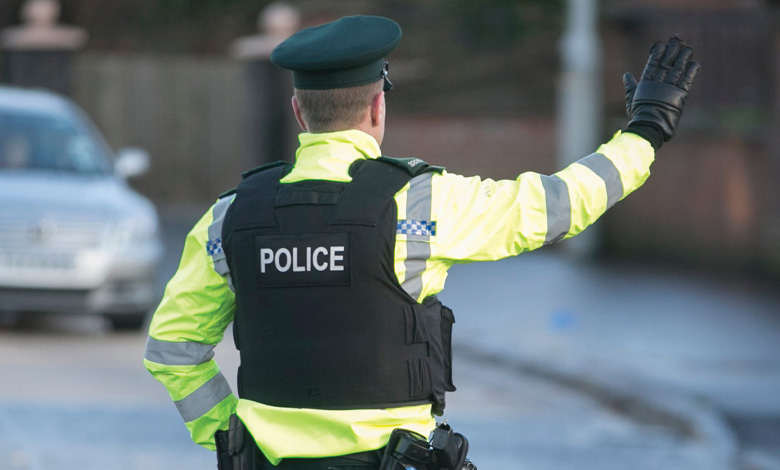New PSNI chief faces twin crises in public and staff confidence

Jon Boutcher assumes his position as Chief Constable of the Police Service of Northern Ireland (PSNI) at a time that is difficult to interpret for the justice sector: public confidence has arguably never been lower in the PSNI, but 2023 also marked the first year without a security-related death since the beginning of records in 1969, writes Odrán Waldron.
Dissatisfaction with the current state of policing in Northern Ireland is not exclusive to the public, with the sentiment of rank-and-file police officers expressed by Liam Kelly, Chairman of the Police Federation for Northern Ireland, who stated that the UK Government needs to “get a grip” on the “deepening crisis in policing”.
Amidst the resignation of former Chief Constable Simon Byrne, budgetary issues that have seen officer numbers fall to a record low, and the worst data breach in UK policing history that saw the surnames and initials of members of the PSNI released by mistake, Kelly stated that the UK Government is presiding over “appalling damage” to local policing.
The data breach has perhaps been the defining aspect of a damaged relationship between PSNI rank-and-file and leadership structure, with one officer having resigned as a direct result of the breach, 50 having gone on sick leave since the breach, and over 4,000 officers and civilian staff having contacted a threat assessment group, with a similar number of over 4,000 (not necessarily the same 4,000) having signed up to legal action against the PSNI over the breach.
A review into the breach headed by former temporary commissioner of the City of London Police Pete O’Doherty stated that the leak stemmed from a legitimate freedom of information request related to the breakdown of staff roles within the PSNI, with an individual failing to remove a hidden tab in the spreadsheet given as a response that contained raw data that included surnames, first initials, ranks or grades, location, gender, and unit. The report found that the breach occurred as “a consequence of many factors, and fundamentally a result of PSNI as an organisation not seizing opportunities to better and more proactively secure and protect its data, to identify and prevent risk earlier on, or to do so in an agile and modern way”.
With the assuaging of workforce complaints among the first items on his agenda upon taking office, Boutcher used his first appearance before the Policing Board in December 2023 to promise that a 7 per cent pay rise for officers will be implemented at a cost of £20 million to the PSNI despite the force facing an end-of-year deficit of £52 million. “We have to find out how we pay it, not that we are not going to pay it,” Boutcher said. “If I have to step into a position where I am breaching my accounting officer responsibilities and the board and the Department of Justice decide they will have to sanction me, then we will get into that territory if we need to.”

Also prominent on Boutcher’s list of priorities will be tackling the crisis in public confidence in the PSNI, which has been “hugely rocked by one blow after another” according to Policing Board member Mark Durkan MLA. Policing relations with the public took several blows during the reign of Boutcher’s predecessor Simon Byrne, with incidents such as Byrne posing for a Christmas Day photograph in Crossmaglen with officers carrying automatic rifles, the death of teenager Noah Donohoe and subsequent investigation into his death, the arrest of mourners at a south Belfast commemoration for those killed in the 1992 Sean Graham bookmakers massacre, the subsequent disciplining of the officers involved and further High Court ruling that said discipline was unlawful, and the data breach all raising concerns about PSNI leadership.
Further adding to this was Byrne’s initial refusal to resign in the days immediately following the data breach despite a LucidTalk poll finding that only 16 per cent of people in Northern Ireland had any confidence in the PSNI, with 60 per cent expressing no confidence.
Addressing this crisis in confidence will be a challenge for Boutcher given the PSNI’s simultaneous budgetary crisis. Speaking to Derry City and Strabane District Council’s Governance and Strategic Planning Committee in November 2023, Liam Kelly said that there is a reduction of up to 40 officers in police service per year, meaning that policing does not have the budget to deliver a full service.
“Policing does not have the budget to provide the full services that it can, and we are starting to see the consequences of that now,” Kelly said. “From April this year [2023], we have had no recruitment of officers, as well officers leaving due to retirement or those early and mid-career leaving because we can’t pay competitive salaries.
“It is also a sad reflection that, some 25 years after the Good Friday Agreement, that we still have a terrorist threat to officers both on and off duty. The attacks, compounded by the data breach in summer, has resulted in spiralling sickness levels and reduced resources.”
Despite this threat, which culminated in the attempted murder of Detective Chief Inspector John Caldwell in February 2023, 2023 was the first year since records began in 1969 in which a security-related death was not recorded.
Such a situation leaves Boutcher with an unenviable web to disentangle: budgetary constraints and issues outside of his control from the breach mean that public and staff morale are low, while the threat to officers has been increased by the breach, but the safest year on record for officers has also just been recorded.
Boutcher is an experienced policeman, having led the investigation into the 7/7 bombings in London and the Operation Kenova team, which investigated the British intelligence agent Stakeknife but led to no prosecutions, and he will need to lean on that experience for what may well be the biggest challenge of his career to date.





